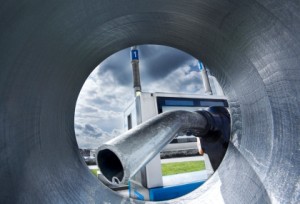
By Jo Tacon, car finance writer, Business Car Manager
Who enjoys filling in expenses forms – anyone? Perhaps a few of the accountancy-minded among you could answer that question with an enthusiastic “yes!”, but for the majority of us who are less spreadsheet-inclined, filling in ‘exes’ forms is a tedious chore, even though we know it’s a chore worth doing.
Claiming back for fuel used during work hours means another monthly form for fleet vehicle drivers to fill in – unless, of course, your drivers have a fuel card in their purse or wallet.
Issuing fuel cards to your employees means less hassle for them, but even more crucially it means much better oversight for the fleet manager. No more are interesting, concerning, or potentially expensive details hidden away in columns of numbers; fuel cards allow you to see immediately if there are anomalies or unexpected figures in the monthly fuel spend of the business cars that you manage.
Colin Tourick, fleet consultant and author of Managing Your Company Cars, says: “Many businesses are attracted to fuel cards simply because they are an efficient way to collect all fuel expenses onto one invoice. Others find them a useful form of credit – there is no need to give staff cash advances for fuel and no need for staff to use up their personal credit card limits on company fuel.”
Tourick calls himself a “big fan” of fuel cards. He says that they perhaps work best when a company pays for an employee’s private and business mileage, but that his advice to fleet managers considering the issue is always to stick with a fuel card even where private mileage is not paid for, as “they help fleets manage their costs and most definitely make fleet administration much simpler” – which is as true for an SME business with half a dozen company cars as it is for those larger companies with a company car fleet in the hundreds.
But what about the providers of fuel cards? How do they see the benefits of a using a fuel card? Here’s what Shell has to say: “Our business fuel cards offer businesses a more secure and efficient way to buy fuel. They deliver detailed online information on fuel consumption that is easy to access and helps to prevent fraud. A business car manager can better manage their fuel purchases and potentially reduce costs.”
What to consider for a small business
Paul Jackson runs The Miles Consultancy, which specialises in mileage audit and fuel expense management: “Look for a fuel card that your drivers can use anywhere, especially at low-price outlets like supermarkets, so they don’t have to waste time and fuel looking for one particular brand.
“Always remember that the biggest influence on your company’s fuel bills is invariably mileage. A very effective way to cut fuel-related spend (typically by as much as 25%) is to use fuel cards with a mileage management solution designed specifically for small businesses.”
With pump prices currently sky-high, a fuel management plan which includes a fuel card for drivers is a useful investment in reducing pence per mile costs.
Savings of just a few pounds per vehicle per month will quickly add up – even for the smallest fleet under your company car management. And, as Neville Briggs, MD of CFC Solutions points out, high fuel prices mean higher levels of driver fraud: “If you operate a fuel card system and link each card to a vehicle, then fraud is almost impossible. However, if you simply allow drivers to reclaim fuel from receipts submitted, it is all too easy for them to fill up their spouse’s car using company money once a month.”
Fuel cards: you can’t afford for your business car drivers to leave the office without one.
Expert commentary from Fleet Alliance on fuel cards

“Small businesses and SMEs should certainly consider using fuel cards if they have a small fleets of company cars. It’s more important for such businesses to concentrate on their core skills than waste time and energy on collecting fuel receipts and paying expenses against them.
“So fuel cards are a major administrative advantage for your company. From a company car driver viewpoint it also controls their spending behaviour – you can specify fuel only rather than that odd sandwich that can always gets slipped onto the bill each time.
“We’ve certainly seen our own clients, who use the Fleet Alliance Fuel Card as part of our Fleet 360 fleet management offering to them, reduce costs too. Apart from saving on administration, fuel cards provide excellent reporting information and can highlight which employees are driving efficiently, and those that could do with some encouragement to improve their fuel consumption.”
Martin Brown managing director of fleet solutions provider, Fleet Alliance







